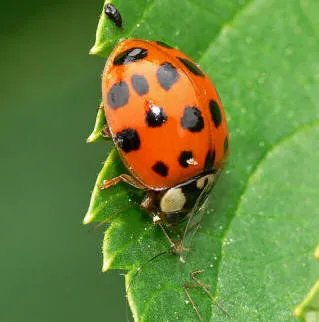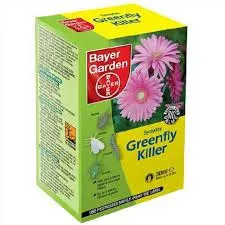The one good thing about Black Fly - or Blackfly - is that they are easy to see. Sometimes the other closely related aphid - the Greenfly, is not seen until it has taken a stranglehold on its plant meal.
As with all other Aphids, Black Fly is a sap sucker. It literally sucks the host plant to death. A little bit of exaggeration, in that it departs the plant that is giving it a feed, before it dies. A dead plant is of no use to this sap sucker!
As Black Fly are easy to see, we have the advantage of being able to deal with it - getting rid of it - before it can do too much damage. Even when we see the seemingly devastating effect of over-wintered broad beans, all is not lost. In this case, it simply puts the plant back a bit. kill the black fly, and the plant soon recovers.
There are three basic ways of dealing with a Black Fly infestation. Spray with an insecticide or puffer; using a biological control; or preventing them in the first place!

Blackfly - along with the other Aphids - have a quite complicated life cycle, thus making them more difficult to control. For instance, the Black Fly female, is quite capable of producing live young - and eggs - without the help of the male! Live young are immediately able to feed upon the host plant. They do not have to wean on the mother Black fly, so getting in early with control measures is quite important.
As their name suggests, Black Fly can fly! This is part of their life cycle apparatus, in that the female flies off in the Autumn to lay eggs on a host plant which over-winter. The young are born with the ability to fly immediately in early spring; their first point of call is normally the over-wintered broad beans - which make a succulent meal before most other suitable plants start to grow.
More young are born - with wings - enabling a migration to the likes of Viburnum, Honeysuckle and then the later Dahlias. From there, off once again to perform the Winter Egg Laying off site!
Fortunately, the image shows the Blackfly at many times normal size. They are only a few millimetres long! Image by Joaquim Alves Gaspar,
The quickest way to get rid of Blackfly is to apply a spray as soon as you see the infestation. This will most certainly be on Broad Beans firstly, followed by French and Runner Beans, then ornamentals such as Dahlias, Poppies and nasturtium later. Later still, they will surface on the Autumnal foliage of Mock Orange (Philadelphus). Viburnum opulus types and Euonymus japonicus europus (The evergreen one).

Ladybird

Greenfly Killer
Blackflies start appearing in the middle of May and the season can last until early July. Each Black fly will only last 2 to 3 weeks in its fly form, you can follow the Life Cycle of Blackfly.
These work to a certain extent, if the femail is hungry enough, she will still bite.
Make up your own repellant mixture, simply, mix 8 parts water, with 1 part vinegar and add a few drops of spearmint, mint or peppermint. Shake well and put into a spray bottle, spray yourselves and pets, if there is a place where you sit, spray the area. It is a cheap method and keeps away the majority of blackflies.
Wear Light Clothes. Wear light clothes, whites and beiges are ideal, avoid dark colours and try to wear long sleaves and pants if you keep getting bothered.
The final simple method is spearmint, mint or peppermint airfreshners, hang them around where you sit or place an airfreshner in line with a fan to disperse the scent around.
It is the Female Blackfly which bites, it requires nutrients from your blood to provide food for its eggs. There fore it will bite you just before it is going to lay its eggs. So they do not die after feeding on you, they need to feed on you to survive.
Blackflies enjoy a different environment to our houses, they do not like to stray too far from water. What does attract blackflies to houses are dark colours. White houses attract fewer flies than bright and dark coloured houses.
Main Page for Apple Tree Problems